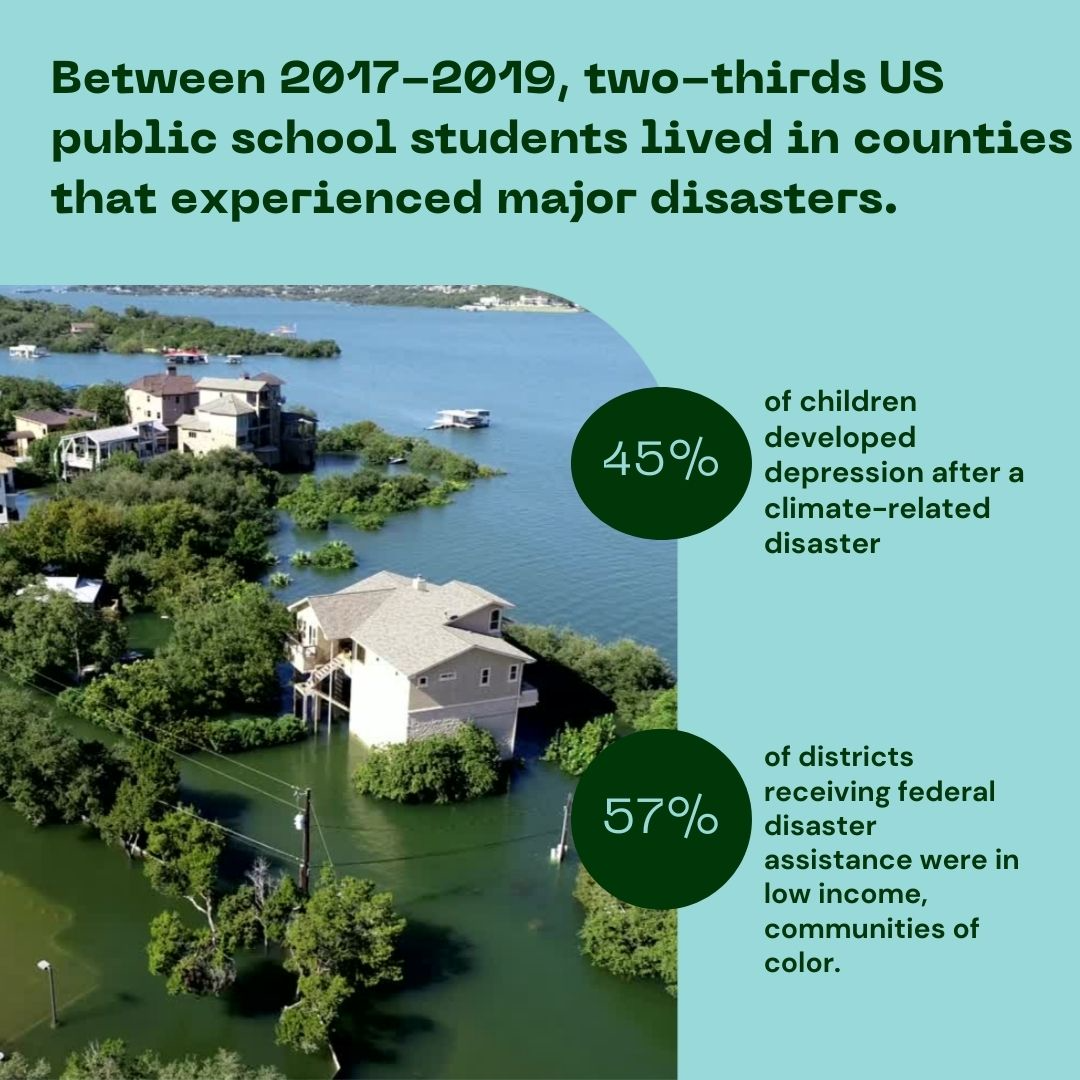SCHOOLS FOR CLIMATE ACTION
Support the Campaign for H.Res.259:
Promoting youth mental health and well-being in a changing climate
Youth are experiencing an unprecedented level of climate anxiety and the mental health impacts of recurrent climate-related disasters are a threat to children's' health.
Children need support to be resilient as they take on the issue of fighting for climate justice. This House Resolution, written by high school climate advocates, is the first piece of legislation detailing the latest research on youth climate anxiety, the disproportionate impact of climate mental health issues on BIPOC youth, and calls for funding for resources to support the mental health of young people affected by the climate crisis.
H.Res.259 is endorsed by over 100 organizations!
Youth Mental Health and the Climate Crisis Fast FACTS:
According to a 2020 Call-t0-Action in the Lancet:
"Youth might be more likely than adults to experience ill-effects associated with climate anxiety. They are at a crucial point in their physical and psychological development, when enhanced vulnerability to the effects of stress and everyday anxiety elevate their risk of developing depression, anxiety, and substance use disorders.:"
"Youth might be more likely than adults to experience ill-effects associated with climate anxiety. They are at a crucial point in their physical and psychological development, when enhanced vulnerability to the effects of stress and everyday anxiety elevate their risk of developing depression, anxiety, and substance use disorders.:"
What is your greatest climate risk? Find out here!


